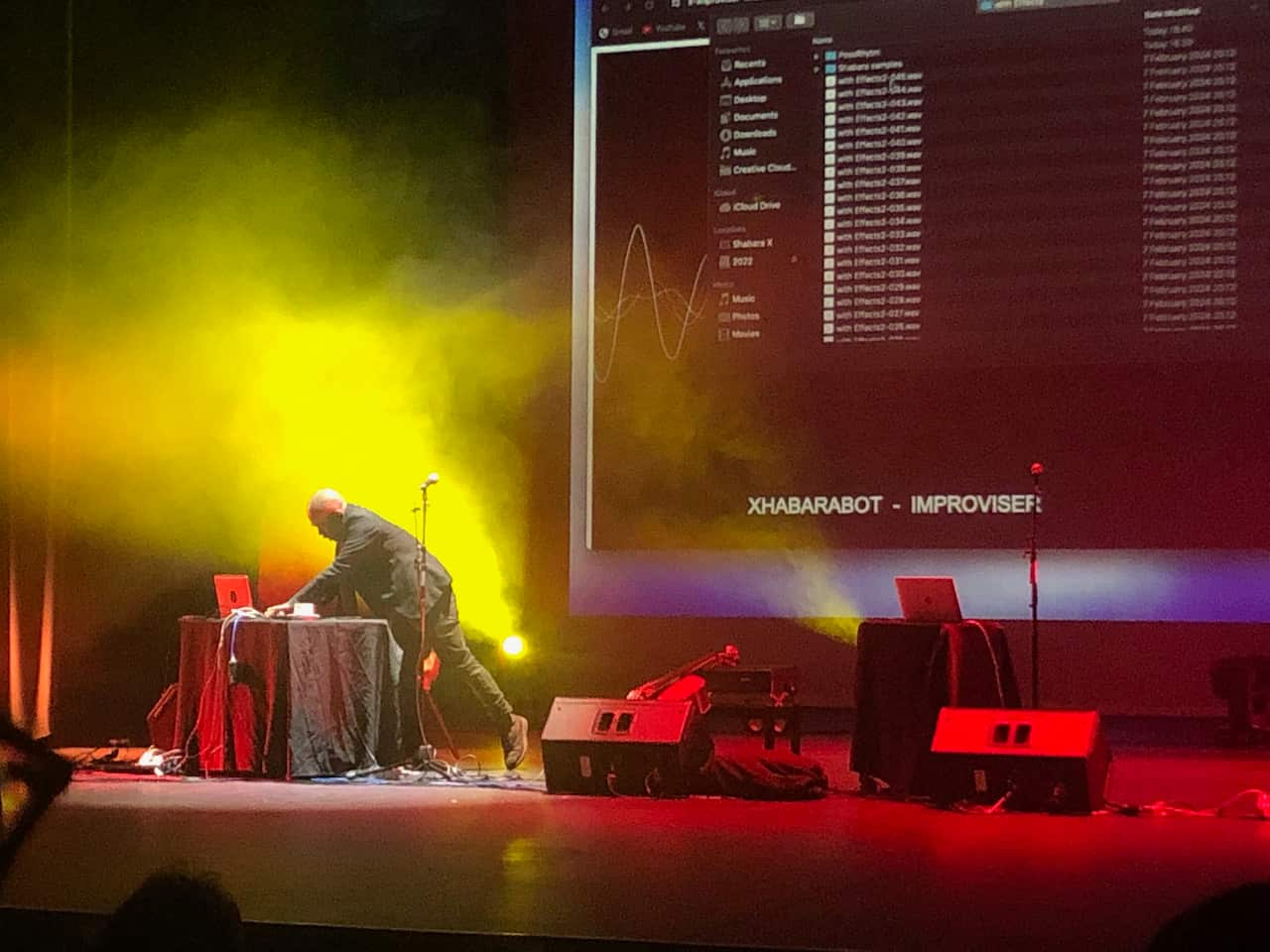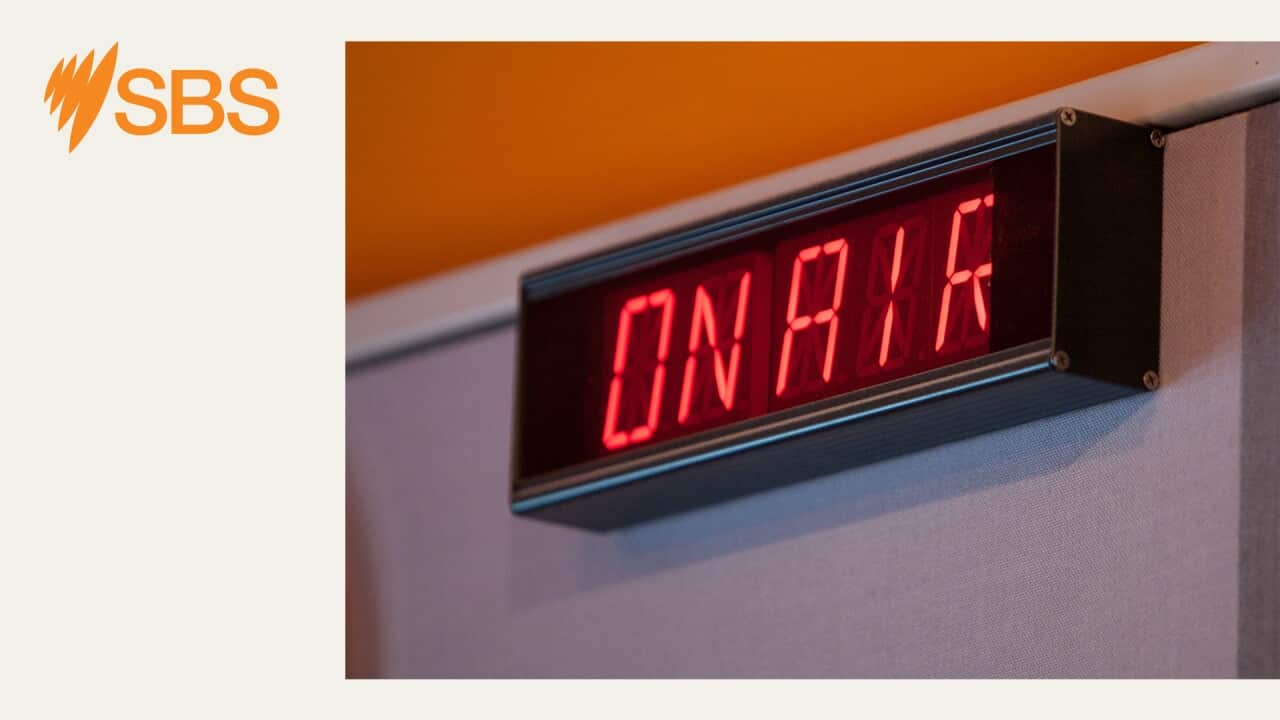In this rich age of Artificial Intelligence (AI), there are those who feel threatened because they fear that A.I. will replace them in their work, but there are also those who try to use A.I to experiment, even as a substitute for their existence in certain realms of their lives, such as the artist Rully Shabara.
Rully is a musician, sound art expert and part of the experimental music duo Compound who have been touring the world including Australia.
He did stop by Melbourne recently to perform at the Darebin Arts Centre alongside some local artists.
However, collaborating with these artists on stage is not himself but a bot or interactive computer program of his creation, named Xhabarabot.
Technically, in fact, Rully's presence on stage to collaborate in the future could be replaced by Xhabarabot.

Rully Shabara and his Xhabarabot performing live
According to Rully, it took two years for him to create Xhabarabot. And to date, this tool is still in the process of development.
Joel Stern of RMIT University invited Rully to hold a workshop on the use of Xhabarabot for the public.
“I think what Rully is doing with this sound engine is quite new. Indeed, the history of electronic music goes back more than 100 years, but what is interesting here is the way he incorporates Rully's personality and aesthetics as well as various traditional Indonesian music into the program,” Joel explained.
At a time when many people feel threatened by the presence of A.I., Rully sees A.I as a valuable potential that could replace his presence in some career realms, while Rully himself could focus on things that are more important to him today, such as family.
Kristi Monfries, director of Liquid Architecture, the arts organisation that invited Rully to Melbourne this time, admitted that Rully's vision for AI was optimistic.
“He's that, this machine is digital, he's a kind of interface people can use to collaborate. So he responds to what we play. The machine is the sound of my voice,” Rully explained.
Artists performing alongside Rully and his bot this time were Jocelyn, Ale Hop, Brian Fuata and Peggy Lee.
“The show is more about a variety of approaches to sound art, both in terms of conversations with ancestors like Brian Fuata, and for those who are very technically adept at the instrument, while Jocelyn's vocal technique tends to sound more sweet,” Kristi explains.
Jocelyn is an artist from Melbourne who is currently exploring her Indonesian side. The
experience of working with both Rully and Xhabarabot on Rully's creations was fascinating and even greatly influenced the process of creating his album, which is planned to be released in May 2024.
According to Jocelyn, it took him about two hours to learn one type of Xhabarabot music program. The program is easier to learn than other music programs like Ableton, he explained.
On the same site as Xhabarabot, you can even chat with chatbots whose personality resembles Rully.
This chatbot can certainly answer technical questions about using Xhabarabot, but basically it can also be chatted with about anything.
In fact, according to Jocelyn, she often discusses or confides in the chatbot when she feels less confident about her artistic choices.




